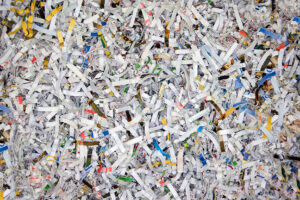The medical landscape is a vast and intricate one, with countless operations, treatments, and procedures taking place daily. These activities invariably generate waste – some benign, some hazardous. The management, treatment, and disposal of such waste is a science in itself. This is where specialized medical waste services come into play. These services ensure that waste is handled safely and compliantly, mitigating risks to both public health and the environment.
The Spectrum of Medical Waste Services
Given the diversity of medical waste, it’s no surprise that there’s a broad range of services designed to tackle them. Let’s delve into the various types of medical waste services available to healthcare providers.
- Sharps Waste Services: Sharps, like needles, syringes, and scalpels, pose direct injury risks. Dedicated sharps waste services ensure these items are safely collected in puncture-proof containers, treated, and then disposed of, eliminating potential hazards.
- Pharmaceutical Waste Services: Expired or unused medications can’t simply be thrown in the trash. These substances, if not properly managed, can contaminate water sources and harm the environment. Pharmaceutical waste services ensure that such waste is identified, segregated, and then treated appropriately.
- Pathological Waste Services: This category includes body parts, tissues, and fluids. Given the sensitive nature of such waste, specialized services ensure that they are collected and disposed of with dignity and care, often through incineration.
- Chemotherapy Waste Services: Waste generated from chemotherapy treatments is particularly hazardous and requires careful handling. Dedicated services ensure that such waste, whether it’s gloves, gowns, or empty vials, is segregated and treated to neutralize potential harm.
- Trace Chemotherapy and Cytotoxic Waste Services: While similar to chemotherapy waste, trace amounts and cytotoxic waste (harmful to cells) have their unique protocols for disposal, requiring specialized services.
- General Medical Waste Services: Not all waste generated in a healthcare setting is hazardous. Items like gloves, bandages, or gowns that aren’t contaminated by blood or other potentially infectious materials fall under general medical waste. Services in this category ensure that such waste is collected and treated, often with an emphasis on recycling or energy recovery.
- Dental Amalgam Waste Services: Dental procedures, especially those involving mercury amalgam fillings, produce a unique type of waste. Dedicated services ensure the safe collection and disposal of these materials, preventing mercury from entering the environment.
- Document Destruction: Medical facilities generate vast amounts of paperwork, some of which contains sensitive information. Document destruction services within the realm of medical waste ensure these papers are securely shredded and disposed of, maintaining patient confidentiality.
The Broader Impact of Comprehensive Medical Waste Services
Beyond the immediate goal of safe disposal, medical waste services play a vital role in:
- Regulatory Compliance: Adhering to local, state, and federal guidelines on waste disposal.
- Environmental Stewardship: Preventing contamination and emphasizing sustainable disposal practices.
- Public Health: Minimizing the spread of infections and diseases from improperly handled waste.
In Conclusion
Medical waste services are the unsung heroes in the healthcare sector. As the medical world continues to evolve, so too will the complexities of waste generation and the need for sophisticated disposal solutions. By understanding and investing in the right medical waste services, healthcare providers can ensure a safer, cleaner, and more compliant operational environment.
If your healthcare facility is seeking expertise in waste management, our comprehensive suite of medical waste services is tailored to meet every nuanced need. Reach out to us for a consultation and discover the difference of professional waste management.










